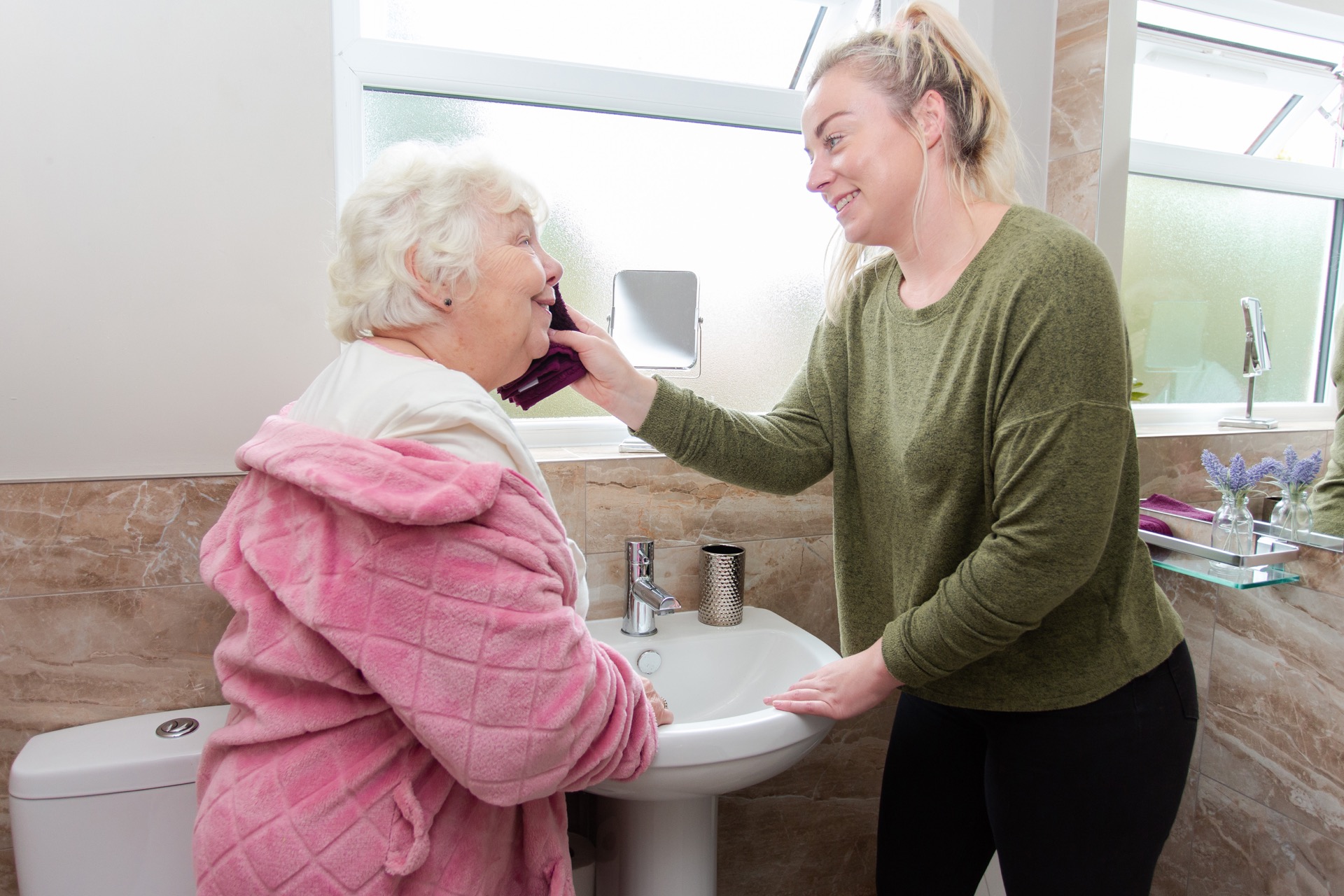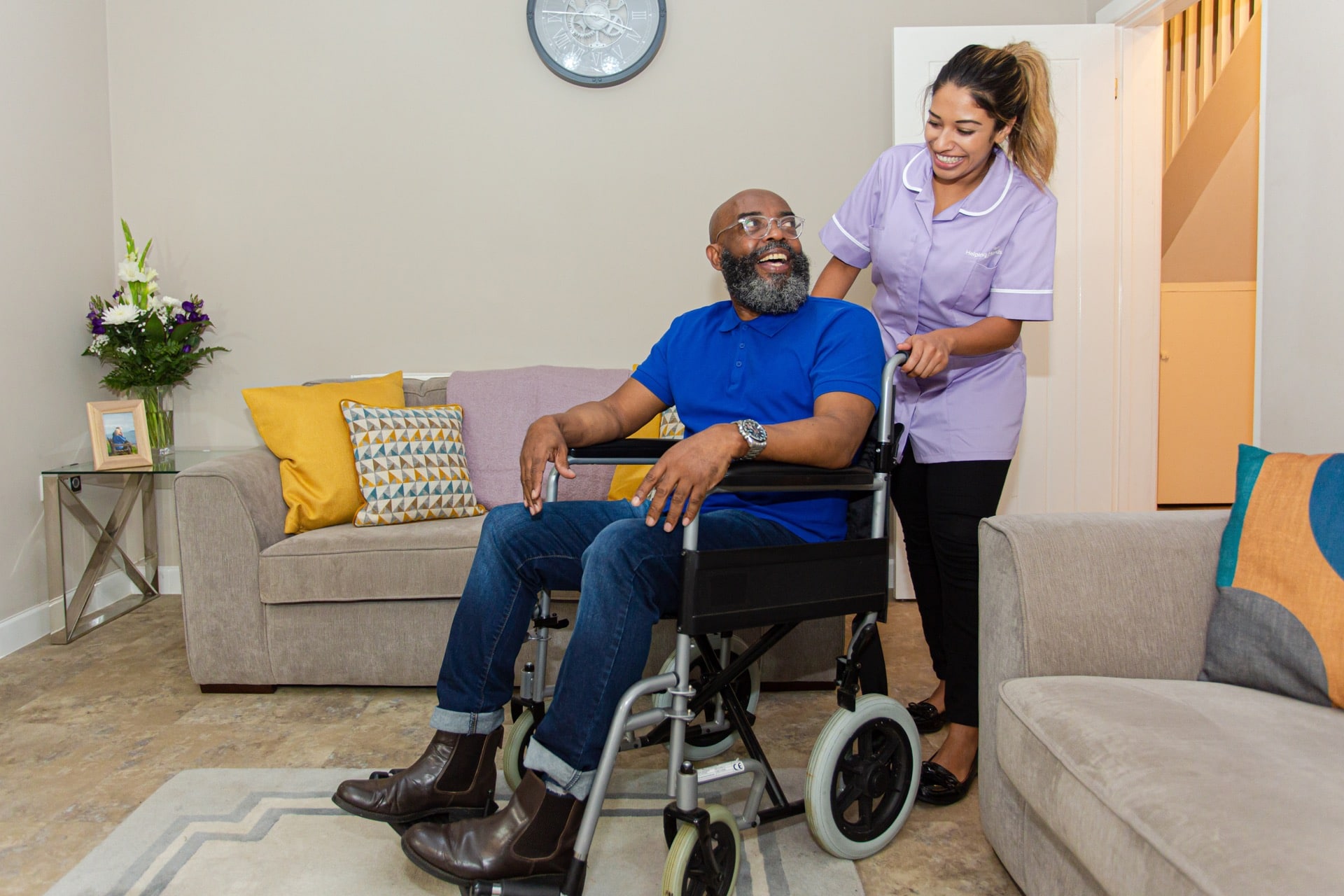Rapidly progressive dementia: Things to know

What is rapidly progressive dementia?
Rapidly progressive dementia refers to a group of dementias that progress quickly, typically over the course of weeks to months, but sometimes up to two to three years. Unlike other forms of dementia, such as Alzheimer’s disease, these dementias can rapidly lead to severe cognitive decline and loss of independence.
The presentation and progress of RPD will vary between individuals. People affected will usually develop problems with their memory, thought processes and communication. Many people also have personality or behavioural changes and mood disturbance, as well as movement changes that can occur as a result of brain damage. These cognitive and behavioural changes can make it difficult to complete everyday tasks such as managing medications, dressing and bathing independently.

How does RPD differ from other types of dementia?

RPD is relatively rare, and causes quicker deterioration than other types of dementia.
Dementia, particularly Alzheimer’s, typically develops slowly over many years and is often diagnosed in the late stages of the illness. RPD, on the other hand, is different as it progresses much more quickly. However, compared to Alzheimer’s disease and vascular dementia, RPD tends to be rare, often challenging to diagnose, and can develop at a greater rate.
In general, dementia is a progressive condition, meaning that it gets steadily worse over time. However, the speed of deterioration often differs between individuals depending on age, general health status, and the underlying cause of dementia.
Early symptoms of RPD
There are some early signs of rapidly progressive dementia to look out for.
The average age of onset of sporadic Creutzfeldt-Jakob disease (or CJD which is rare, degenerative, fatal brain disorder) is 60–70 years. Those affected may initially experience several early symptoms, all of which may occur weeks before the onset of nervous system dysfunction. These include:
Sleep disturbances
Decreased appetite
Behavioural changes
Fatigue

What causes dementia to progress quickly?
There are many causes of RPD. The word VITAMINS is a useful mnemonic in which each letter refers to a group of causes of RPD:
V: Vascular
Disturbed blood flow to the brain, including strokes, can cause more sudden and severe vascular dementia
I: Infections
These may involve secondary effects of COVID-19 or direct brain damage from other infections (HIV, Lyme disease etc)
T: Toxic
Toxic metabolic. Due to vitamin excesses, vitamin deficiencies, disorders of nutrition, or abuse or side effects of drugs etc.
A: Antibodies
In some autoimmune conditions, certain antibodies are produced which can attack brain or nerve tissue
M: Mitochondrial disease
Mitochondrial disease and metastasis. Neurodegenerative conditions may be underpinned by disorders of the mitochondria
I: Interventions
This indicates RPD caused by medical interventions, usually because of side effects of medications or other treatments
N: Neurodegenerative
Neurodegenerative conditions and neoplasm. Unusual presentations of common causes of dementia may induce RPD.
S: Seizures
You may experience seizures or disorders that affect the whole body, such as rheumatologic or cardiovascular diseases
Diagnosing RPD
RPD can be difficult to diagnose, so we advise you consult a doctor with specialist knowledge.
RPD is often a challenging condition to diagnose. Despite this, it is critical to perform an evaluation as early as possible, usually in a hospital setting, following a structured approach to diagnosis. The initial step in this process may be to evaluate for delirium and perform tests to attempt to rule out infections, autoimmune disorder, cancer, vascular disease, and toxic-metabolic disorders.
Among older adults in particular, most cases of sudden confusion and RPD are caused by delirium from an infection – especially urinary infections and pneumonia – that can cause the following symptoms in people:

Incoherence
Disorientation
Agitation
Aggression
Odd behaviour
Tests for RPD

If delirium can be ruled out, further tests like viral PCR or CT body scans or serum vitamins B12 and E tests may be ordered. Additional specific clinical and imaging features can, in some cases, steer the specialist clinician directly to a certain diagnosis.
A thorough physical examination and detailed personal history will also help rule out or confirm a diagnosis of RPD. For example, there may be family history of neurological or psychiatric disease, but relatives may have been misdiagnosed. A genetic prion disease may have been mistaken for other neurological or psychiatric disorders, including Alzheimer’s and Parkinson’s disease. Furthermore, an assessment of the person’s ability to complete different everyday activities can help assess how far the RPD has progressed.
What is the treatment of RPD?
Some forms of RPD are treatable, particularly if they are detected at an early stage.
The potential for treatment depends on the type of RPD that is diagnosed. For example, for RPD caused by cancer, hormone imbalance or vascular disease, treatment of the underlying cause may help treat the dementia symptoms also. For some cases of RPD, particularly due to CJD, there are treatments available which are effective in reducing distress, maintaining comfort, and improving quality of life.

You can help someone with dementia by providing them with:
Familiar surroundings
One of the most common symptoms of RPD is an increased sense of confusion and disorientation. Continuing to live in an environment featuring familiar sights and spaces allows the RPD patient to maintain continuity and not be distracted by new surroundings.
Enhanced accessibility
There are a number of home adaptations that you can make to help support someone remain safe and secure at home, including mobility aids and dementia-friendly technology. You can find out more about making a home dementia-friendly here.
How Helping Hands can support those with dementia and their families

Whatever your loved one’s needs, our expert carers are on hand to support them at home.
When you or someone you love is living with dementia, it can be difficult to understand all the changes that are taking place. Helping Hands’ dedicated and compassionate carers will ensure your loved one is fully cared for in the home they love.
We have been supporting people living with dementia in their own homes for over 30 years, meaning that we’re highly experienced in how best to care for people with Alzheimer’s, Vascular, Lewy Body or one of the other 100+ different types of dementia.
How to arrange dementia care
We aim to make it easy to arrange the support you want so that we can focus on what really matters: your care needs. Speak to our team today to begin your journey.
Speak to our team
Call our team of experts to talk through your options and any questions you may have
Free home care assessment
Your local Helping Hands manager will visit you to discuss your care requirements
Find your carer
We’ll help to match you with a carer who meets your preferences and has the right skills
Fully regulated by the CQC / CIW
At Helping Hands, our dementia care service is fully managed and regulated by the Care Quality Commission (CQC).
From your very first phone call to our friendly team, every aspect of your home care service is independently monitored and regulated by the CQC and Care Inspectorate Wales (CIW).
Why is being a regulated company important?
What does regulation mean?
Our service is regularly monitored, inspected and regulated by an independent body
Why do we choose to be regulated?
You have peace of mind that your care is approved by social care’s regulating body
How does regulation affect my care?
Our regulation means that we’ll provide you with high quality care, no matter what
References and further information
https://www.ncbi.nlm.nih.gov/pmc/articles/PMC2706263/
https://journals.plos.org/plosone/article?id=10.1371/journal.pone.0189832
https://memory.ucsf.edu/dementia/rapidly-progressive-dementias
https://www.beingpatient.com/rapidly-progressive-dementias-michael-geschwind/
https://www.nice.org.uk/guidance/ng97/chapter/recommendations
https://www.nhs.uk/conditions/dementia/home-environment/
https://memory.ucsf.edu/sites/memory.ucsf.edu/files/wysiwyg/UCSF_RPD_Providers_7-13-17.pdf
Page reviewed by Carole Kerton-Church, Regional Clinical Lead, on July 25, 2024.
How we wrote this page
This page has been produced referencing key insights and data from external experts, trusted medical sources and our team of in-house specialists. We have worked hard to ensure that all information is as accurate as possible and reflects current consensus at the time of writing and reviewing.
